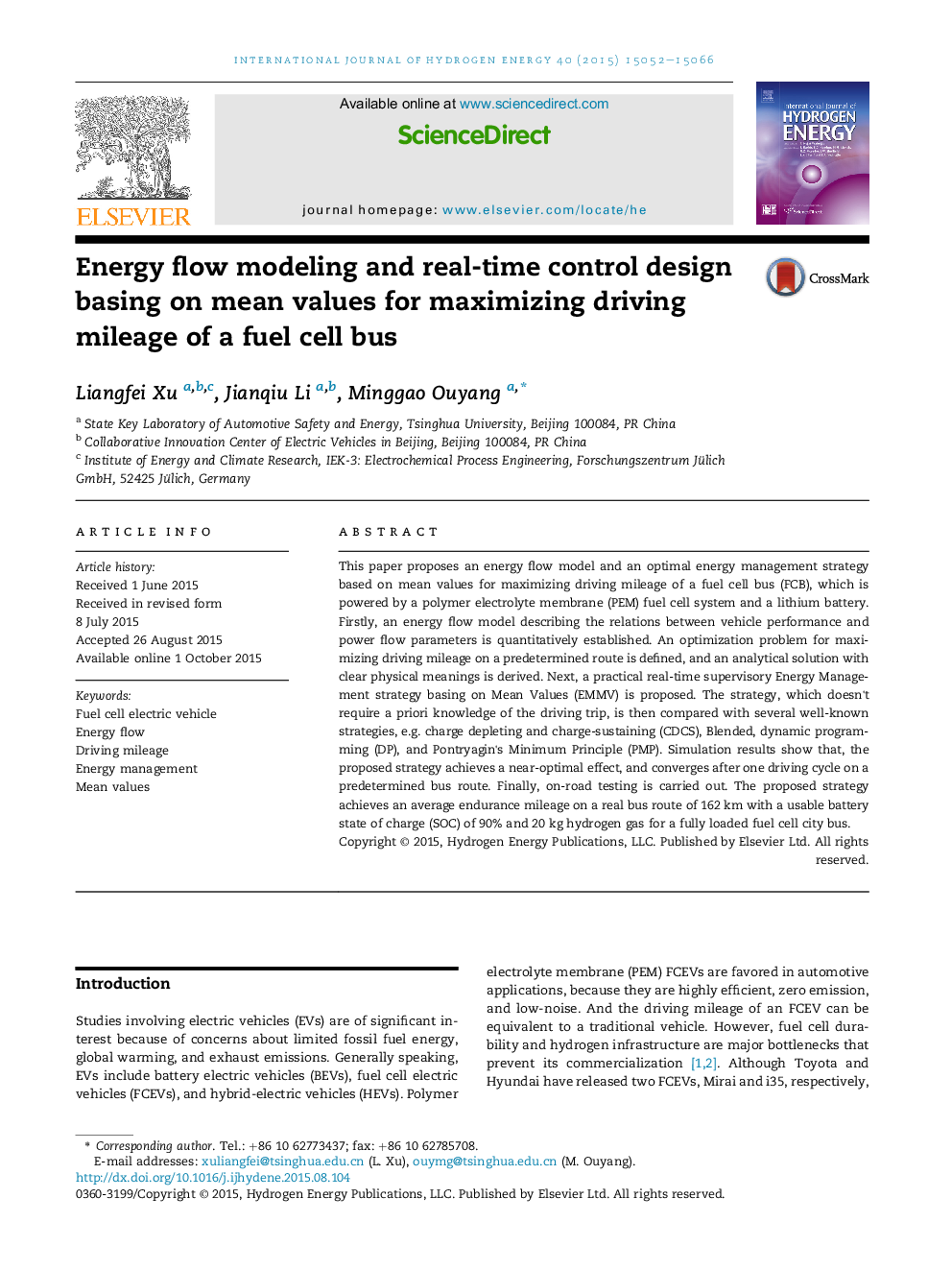| Article ID | Journal | Published Year | Pages | File Type |
|---|---|---|---|---|
| 1274272 | International Journal of Hydrogen Energy | 2015 | 15 Pages |
•Relations between vehicle performance and power flow parameters are quantitatively described.•An analytical optimal energy management strategy for maximizing driving distance is deduced.•The strategy achieves near-optimal effect as PMP and DP, and each variable has clear meaning.
This paper proposes an energy flow model and an optimal energy management strategy based on mean values for maximizing driving mileage of a fuel cell bus (FCB), which is powered by a polymer electrolyte membrane (PEM) fuel cell system and a lithium battery. Firstly, an energy flow model describing the relations between vehicle performance and power flow parameters is quantitatively established. An optimization problem for maximizing driving mileage on a predetermined route is defined, and an analytical solution with clear physical meanings is derived. Next, a practical real-time supervisory Energy Management strategy basing on Mean Values (EMMV) is proposed. The strategy, which doesn't require a priori knowledge of the driving trip, is then compared with several well-known strategies, e.g. charge depleting and charge-sustaining (CDCS), Blended, dynamic programming (DP), and Pontryagin's Minimum Principle (PMP). Simulation results show that, the proposed strategy achieves a near-optimal effect, and converges after one driving cycle on a predetermined bus route. Finally, on-road testing is carried out. The proposed strategy achieves an average endurance mileage on a real bus route of 162 km with a usable battery state of charge (SOC) of 90% and 20 kg hydrogen gas for a fully loaded fuel cell city bus.
